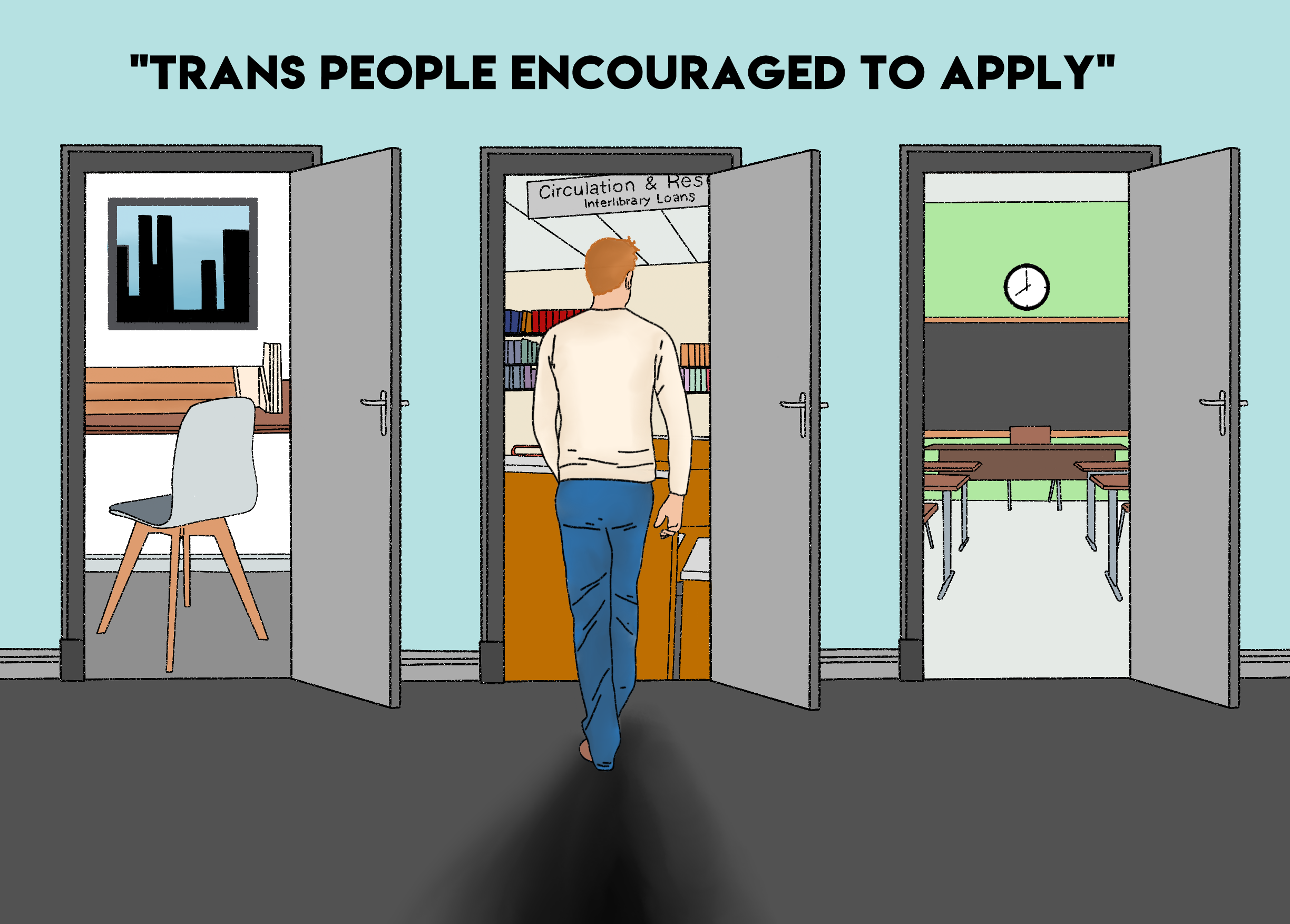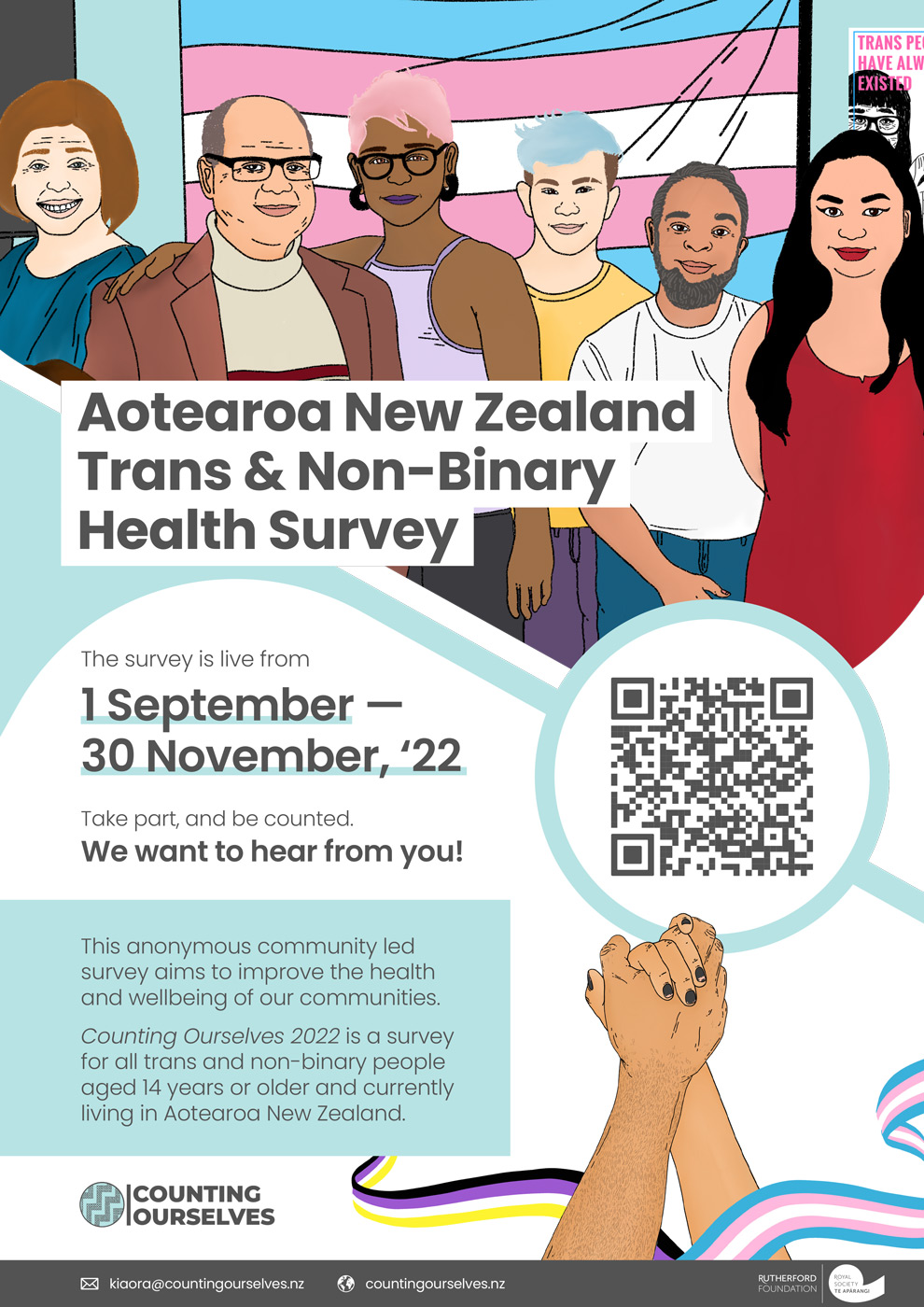Counting Ourselves welcomes yesterday’s release by Statistics New Zealand of its annual LGBT+ population of Aotearoa report. The report confirms the findings of the 2018 Counting Ourselves survey that trans and non-binary people have lower incomes than the overall population or of cisgender (non-transgender) people.
The Household Economic Survey data analysed in Statistics NZ’s report found that transgender and non-binary people earned an average mean disposable income of $32,172 per year. This was $10,439 less per year than the average mean personal disposable income for the cisgender (non-transgender) population.
“The data presented has been adjusted for age, so this is a very robust finding for income inequity faced by our communities”, said Dr Jaimie Veale, Senior Lecturer in Psychology and Principal Investigator for Counting Ourselves. “Findings like these demonstrate the importance of trans and non-binary people, and other LGBT+ people, being counted in official statistics. We look forward to intersex people finally being counted in next year’s Census too.”

Community-led research such as Counting Ourselves provides more detailed insight into the experiences of trans and non-binary people. The first Counting Ourselves survey in 2018 found that 12% of participants had experienced discrimination when they were trying to get a job or at work in the last 12 months. This was four times higher than the rate for the overall population, as measured in the 2016 General Social Survey.
“Discrimination has a very real and measurable impact not only on people’s incomes but on people’s health and wellbeing too”, said Jack Byrne, Senior Researcher and Principal Co-investigator for Counting Ourselves. In 2018, Counting Ourselves participants who had been discriminated against for being trans or non-binary were twice as likely to have attempted suicide in the past year than those who did not experience such discrimination. They were also more likely to have very high psychological distress.
The Household Economic Survey data released today shows people in the LGBT+ population were more than twice as likely to experience daily feelings of anxiety and 2.9 times more likely to experience depression daily.
The Counting Ourselves team are currently seeking participants for the second Counting Ourselves survey. The survey is open until 30 November for any trans or non-binary people living in Aotearoa aged 14 or older. “Repeating the survey is vital to measure the impacts of new challenges such as the COVID-19 pandemic as well as whether there have been improvements over the last four years”, said Jack Byrne.
Over 1,500 people have completed the 2022 Counting Ourselves survey already. “More responses are needed so we can confidently report on regional differences and more detailed findings for Māori, Pasifika and ethnic minority communities, and for disabled people”, said Ashe Yee, Counting Ourselves’ Lab Manager. “We know these population groups all experience higher levels of discrimination, and have lower incomes, and face higher housing insecurity and homelessness.“
The 2022 Counting Ourselves survey can be accessed through the Counting Ourselves website.
t
